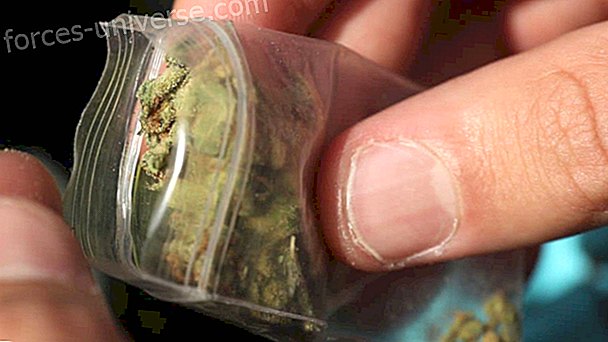Permaculture is returning to earth what we have taken from it. Rosemary Morrow's opinion
- 2013

If you do something really good, you end up doing it better.
Interview with Rosemary Morrow, pioneer of permaculture.
I am 70 years old and I train permaculture trainers to improve the planet. I was born in Perth. I am cu quera: I believe in the power of the community. Let's rethink everything again with the usual common sense. I collaborate with the Institut d Arquitectura Avan ada (IAAC) of Barcelona
The principle of permaculture is to return to the earth what we have taken from it and thus create a sustainable environment in which everything is renewed.
Beautiful and simple.
To achieve this, the three main objectives are: take care of people, take care of the land and give those who do not have what is left over to those who have everything.
This program is more ambitious than the organic artichoke cultivation.
Because you can't do something right, however small, without also improving the rest of the system. To cultivate meaningfully, for example, one must also achieve that the cultivation has a fair price that guarantees a dignified life for the permacultor.
That forces to reform the markets.
Let's say that permaculture explores all the possibilities of doing things better than they do. In agriculture, permaculture is perceiving the entire system and then using common sense. Look there, for example.
I only see one more house.
But you have to rethink it based on the needs you want to meet with it.
I see no fault.
It has a shed on a hill. And that location is a mistake, because it forces the farmer to climb the hill carrying the farming tools, the fertilizer, everything.
The same is that the limit of the plot does not reach higher or is from another owner.
That explains, but does not justify that the location is inadequate.
Cultivating well requires a holistic, holistic approach to agriculture, which forces the whole environment to improve.
Is it not mere common sense?
Yes, but it is not so common, because we tend to judge each need in isolation without seeing it on the big map of things, where everything is integrated and interacts in patterns.
What are the "patterns"?
Nature repeats patterns efficiently: notice how plants are distributed and how insects and birds fly. They follow a series of schemes: we just have to study and imitate them and we will improve.
Fractal mathematics?
They are at the beginning of permaculture. With them we analyze errors when organizing our lives and landscapes and adapt to the environment. To live is to repeat itself, that's why every little detail is multiplied and every mistake too.
To what extent can permaculture think about everything and integrate everything?
I was recently in East Timor ...
He suffered a horrible civil war.
I was there giving a class to train permaculture teachers and, suddenly, a group of former Portuguese settlers showed up and asked me to leave the classroom for a moment.
And you agreed?
Well of course. But then my students explained to me that the settlers had made them an offer: "Let's concentrate the plantations, " they said, "and we can grow coffee very profitably and earn a lot of money."
Wasn't it worth studying the offer?
The offer came when my students had already distributed the land so that each family had their plot. And they rejected her.
What if coffee gives them more money?
Monoculture allows speculation in the short term, but it makes you fragile in the long run: it makes you dependent on a price and puts you in the hands of the landowners, who control the rules of the game to their advantage. In the end, you will end up working for them for a misery.
That is not agriculture, but politics.
You must think green. And when you go to buy coffee, ask yourself: Where does this coffee come from? What price is it? Who broke his back by cultivating it and why are those children who cultivate it not in school?
Is it a universal vital reflection?
It is permaculture. Ask yourself: What is the point of growing coffee to exploit other people? Why do I want to get immensely rich if I impoverish everyone?
Ambition is not always greed.
What worries me is to leave something worthwhile on this planet: improve it a little. Therefore, I teach to train permaculture teachers in many countries, like here in Barcelona. If these professors are limited only to teaching how to plant organic artichokes, it is not enough for anyone.
What is your strategy, then?
Impregnate with permaculating mentality each local culture.
That schools are taught to think in an integral, honest and sincere way to achieve harmony of humans and non-humans with the environment. A small improvement can lead to big ones.
Well, I wish you good luck.
I speak of being practical and rational, because the systems of exploitation of the land and people are not. They are unsustainable and end up causing catastrophes.
Why did you become permacultora?
I'm from Perth, who wasted water: a thousand liters per person a day. In the seventies we realized that the water is not infinite and that we could not continue like this. And I read David Holmgren and Bill Mollison. And I discovered a new way of thinking about everything, but with the usual common sense.
Nothing is small
Rosemary Morrow and the permaculture apostles discovered that if you do something very well, even if it is something small like growing cabbage, you end up improving the entire planet.
Permaculture began as well as a culture essay in its original sense of 'cultivate, grow, create ...'. And it has become a common sense amendment to the selfish totality of the system, designed so that 1 percent of humans own 99 percent of everything.
The power of things well done today leads the permacultor to fight against monoculture speculators so that their little gardens make sense. Therefore, they believe that there is no individual progress without collective commitment.
Lluís Amiguet
Source: La Vanguardia
Permaculture is returning to earth what we have taken from it. Rosemary Morrow's opinion






